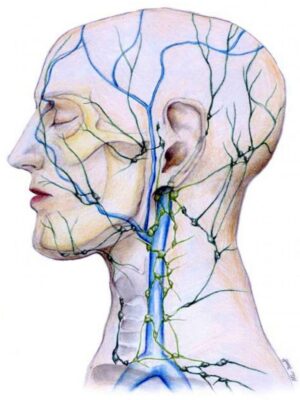The Glymphatic System
When the glymphatic system is not functioning properly, brain health issues usually follow. Sleep disturbances and inflammation affect how this system operates. It is believed that poor sleep will cause malfunctions in clearing the protein aggregates away. This difference can decide who eventually gets an Alzheimer’s or a dementia diagnosis and who does not. Though the brain weighs about three pounds, it consumes 20 to 25 percent of the body’s energy (Nedergaard, March 2016). The brain also eliminates a quarter of an ounce of worn-out proteins that must be replaced daily. A recent 2017 Scientific American article contains information from the author’s research. It describes the glymphatic system, which acts like the lymphatic system of the brain to drain away waste products. This system is managed by brain cells called glia cells.
Waste products and dead proteins that are not flushed out of the brain can accumulate and turn into protein clumps, or aggregates, according to researchers. These aggregates are consistent with the amyloid beta plaque formation seen in Alzheimer’s disease. They can impede the transmission of electrical and chemical signals in the brain and cause irreparable damage. This cleansing system of the brain is much more active at night while at sleep. Astrocytes are a type of glia cells in the brain and spinal cord. They have extensions called end feet that surround every vein, capillary and artery in these areas of the nervous system. The end feet open to the perivascular space – an exterior part of the blood vessel – that is a passageway for fluids surrounding these blood vessels. Astrocytes play a key role in the movement of fluids in this area.
During the sleep process, the glymphatic system is most active clearing away toxins and other metabolic substances that interfere with nerve transmission and help to prevent a buildup of this material, which leads to the aggregate plaque formation that is seen with Alzheimer’s disease. Poor sleep and other factors like chronic brain inflammation reduce the amount of activity with this cleansing system. Therefore, the longer and deeper you sleep could greatly affect your brain’s ability to cleanse itself of these metabolites. The problem is that many people with brain pathogens and heavy metal toxicity will have poor sleep due to the inflammation and toxins produced daily within their brain.
Research has shown that melatonin may support the clearing of brain debris during sleep that may promote a longer and deeper sleep state. The liposomal form is always best.
These statements have not been evaluated by the FDA. The above information does not claim to diagnose. prevent, treat or cure any disease.

